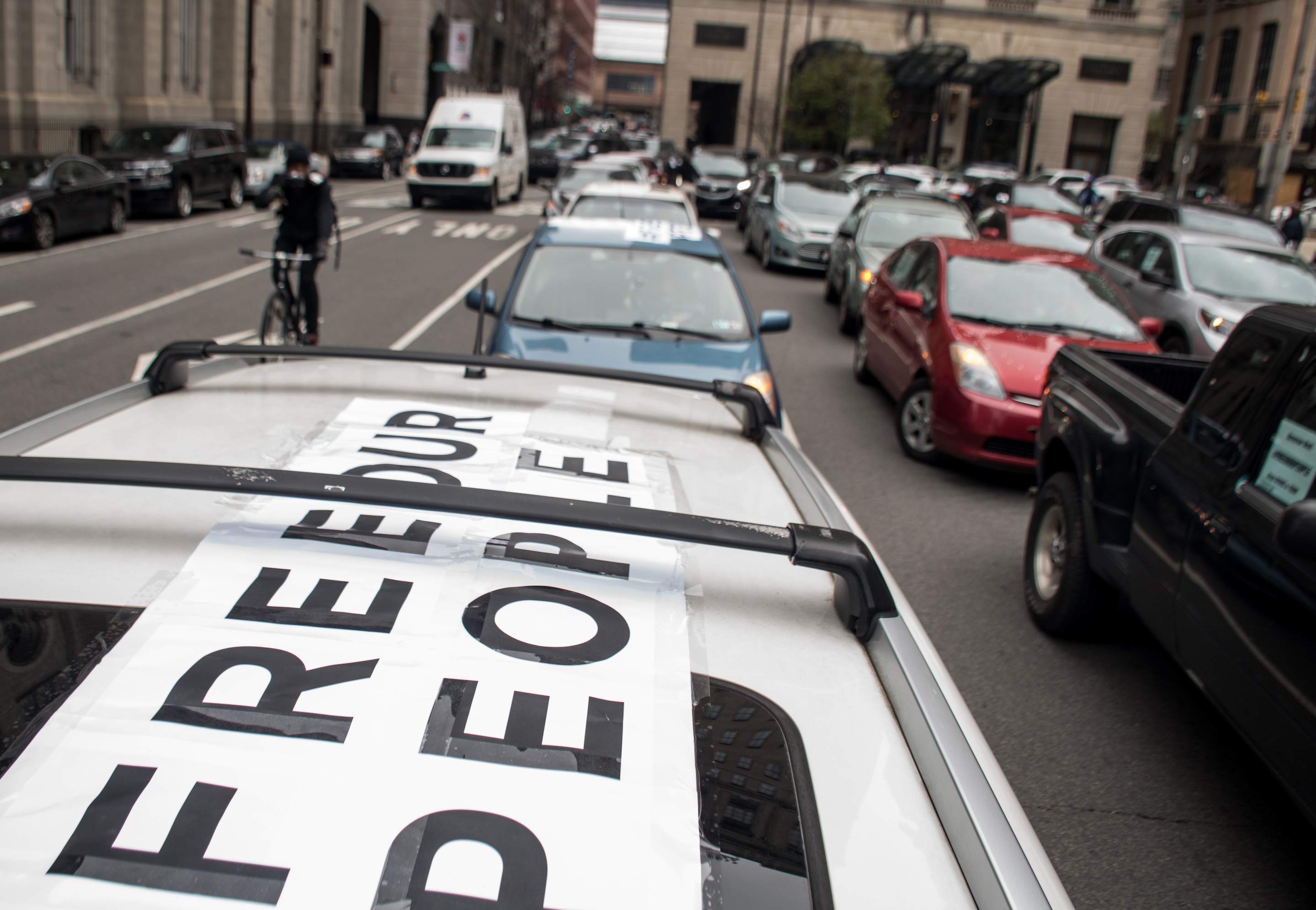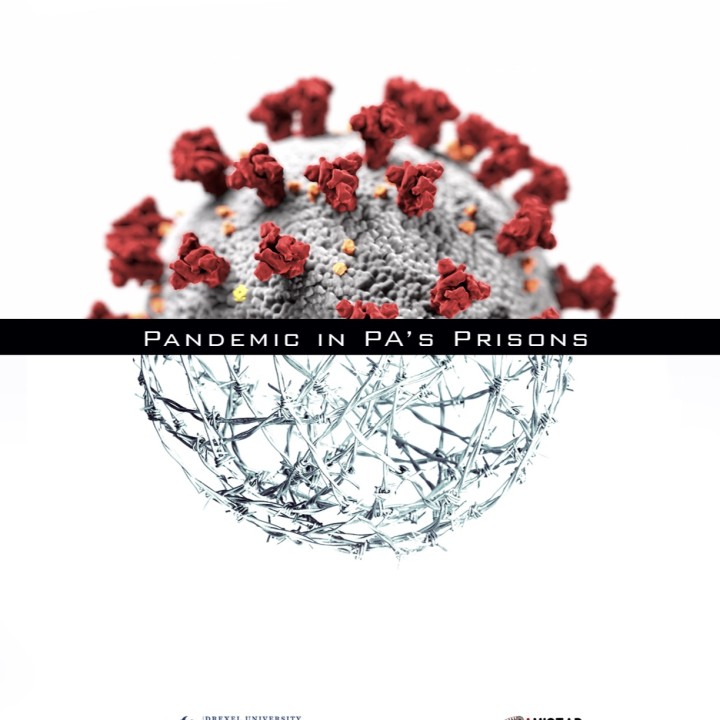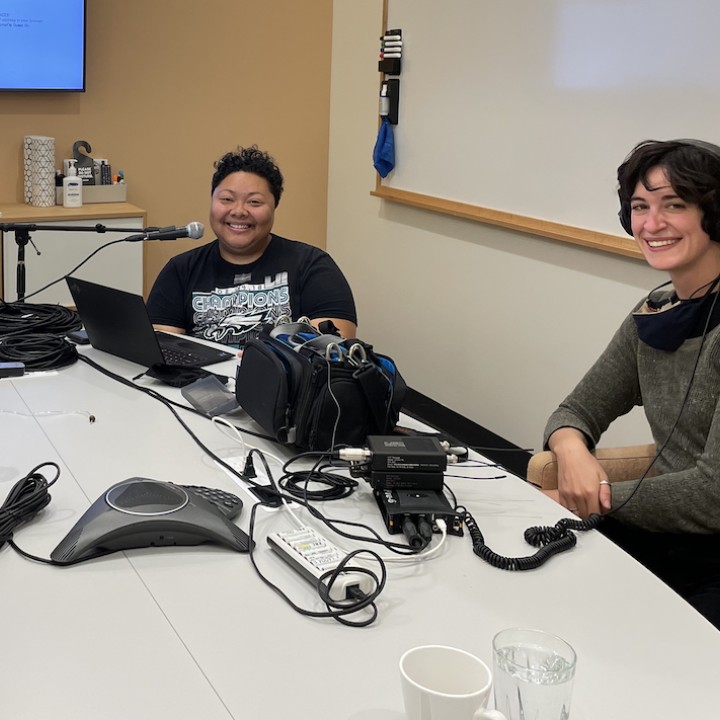Fighting to #FreeTheVulnerable During the Pandemic
During the height of the global pandemic incarcerated people were squeezed tightly together and it was not possible for them to socially distance. We fought to bring people home and save lives.
Prisons are high-risk, poorly ventilated environments where social distancing is impossible. The state demonstrated a lack of care of incarcerated people and we monitored and challenged the state's response as the pandemic hit PA prisons. Since the beginning of the pandemic, Amistad Law Project tracked the spread of the virus through the state prison system. We advocated for a dramatic reduction of the prison population to reduce the harm of the virus to incarcerated people and prison staff. We initially demanded that the population of PA state prisons must be reduced so incarcerated people can single cell and social distancing is more possible. We continue to demand that aging and medically compromised people in prison have a pathway home.
We've taken many actions to advance decarceration as a public health measure. Along with the ACLU of PA and Abolitionist Law Center, we wrote letters to the Governor detailing ways to reduce the prison population. We organized public health experts and faith leaders to speak out. We authored op-eds and spoke out in the media. We co-authored a report on the pandemic in PA prisons with Rachel Lopez, Director of the Andy and Gwen Stern Community Lawyering Clinic and Associate Professor of Law at the Thomas R. Kline School of Law at Drexel University. Through our Free Them to Heal Us network, we organized community members for creative online mobilizations to pressure decision makers.
In response to a powerful wave of advocacy, Governor Wolf established an unprecedented reprieve program to suspend people’s sentences. Sadly, the criteria for who was eligible for reprieve was far too limited and the Governor released only a small number of people. Simultaneously, we saw a reduction of the prison population by over 6,600 people. Some of this reduction is due to the courts being mostly shut down during the pandemic and not feeding the system at the same rate and some is due to increased parole releases. While we celebrate these victories, they are not nearly enough. The Department of Corrections estimates that they would need to release at least 12,000 people to mitigate the harm of COVID-19. At a hearing in January of 2021, Department of Corrections Secretary John Wetzel pegged the number even higher at 15,000.
We continue the fight to bring people home and continue to advocate for an expansion of methods of release such as geriatric and medical parole. In collaboration with two dedicated data scientists with the Annenberg School for Communication, we released our own dashboard to track the spread of COVID-19 in PA prisons. We dedicated the first episode of our podcast to analyzing the pandemic in PA’s prisons. We will continue to make the case for further decarceral reforms during the pandemic and beyond. The problem we face is, in part, a problem of scale. There are too many people in prison for the Department of Corrections to treat them humanely. COVID-19 has tragically illustrated this point, but this has been and continues to be an ongoing reality with regards to the lack of healthcare in prison and the routine neglect with which incarcerated people are treated.

"COVID has shown us that we are all deeply interconnected. We can’t divide our health and well-being from that of others. When my clinic decided to write our report ‘Pandemic in PA Prisons’ documenting the risk that COVID-19 behind bars posed for all of us, we knew that Amistad Law Project was the ideal co-collaborator and author for the report. They were doing the hard work of organizing and advocating to bring people home from prison at a critical moment, thereby filling a critical space in the legal community. Their vision and inspiring work is rooted in a profound understanding that we can't underestimate the power of our collective voices and that social change is only possible when we work together and amplify the voices of those communities most affected by mass incarceration." - Rachel Lopez, Director of the Andy and Gwen Stern Community Lawyering Clinic and Associate Professor of Law at the Thomas R. Kline School of Law at Drexel University

